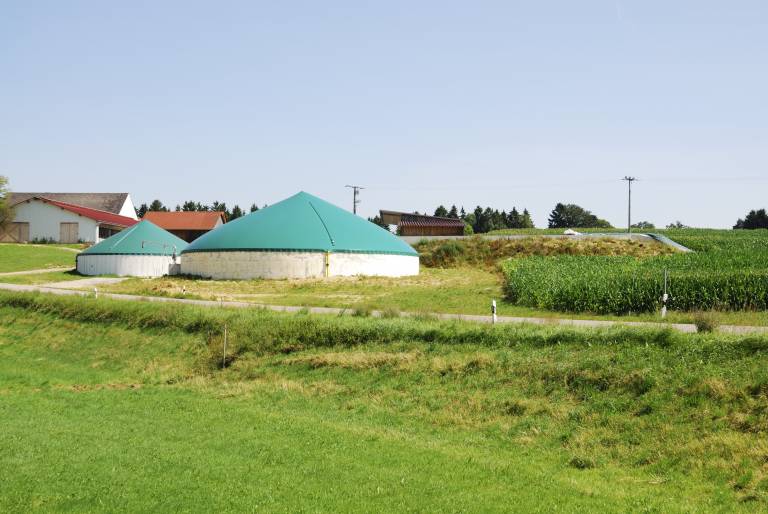CEGE biogas research project awarded €5.5m in Horizon 2020 funding
22 July 2019
The project, NOMAD, will gather partners from China, Greece, the UK, Italy, Romania, Malta and the Netherlands to develop an innovative small-scale tech solution designed to recover nutrients from biogas effluent for formulation into high performance bio-fertiliser products.

Initiated by Civil, Environmental and Geomatic Engineering (CEGE)’s Dr Aiduan Borrion, NOMAD, which stands for Novel Organics Recovery using Mobile ADvanced technology, addresses key biogas effluent, or digestate, issues including environmental and health risks, handling, variable composition and the increasing volume being produced.
Currently, turning digestate into bio-fertiliser products is not feasible for most small plants due to lack of available, cost-effective equipment, and the expense of achieving end of waste standard PAS110. Starting from the best available technologies, NOMAD proposes an original, disruptive and creative approach, offering a modular and mobile solution tailored to both rural and urban areas. The project aims to make significant contributions to a more circular resource-efficient and sustainable agro-food sector.
NOMAD will bring in funding and resources to support Dr Borrion's ongoing research on bioresource technology and sustainability, and will also complement her research programme on real time monitoring and control of anaerobic digestion (AD), sponsored by EPSRC (the Engineering and Physical Sciences Research Council), and Anaero Technology.
Relevant to key UCL Grand Challenges on the circular economy, sustainable cities and transformative technologies, NOMAD was awarded the Horizon 2020 funding in May, with work on the project set to start on 1 October 2019. As the biggest EU Research and Innovation programme ever, Horizon 2020 has seen almost €80 billion of funding become available over seven years, from 2014 to 2020. Comments from the review process focused on the ground-breaking nature of NOMAD’s proposed work, and its disruptive, creative approach to repurposing biogas effluent.
Dr Borrion was “deeply honoured” to receive the funding, and is looking forward to the opportunity to really make a difference in terms of sustainability. “The fact that the innovation potential of NOMAD, due to its modularity and integration, was picked up during the funding review process was especially exciting and validating. There is a real chance to make much better use of digestate, and it’s particularly important that small-scale sites and plants have the capacity and means to do this. Technology offers us solutions that are accessible to all.”
Dr Borrion currently teaches modules on a number of CEGE undergraduate and postgraduate taught degree programmes and runs a high-profile short course entitled "Conducting a Life Cycle Assessment: from Theory to Practical Application” (LCA). Co-director of the Engineering Exchange and the Circular Economy Lab at UCL, Dr Borrion has recently been promoted to Associate Professor, and will become programme director of Environmental Systems Engineering MSc from September 2019.
Links
Please note, some links lead to external sites.
- UCL Civil, Environmental and Geomatic Engineering
- Dr Aiduan Borrion’s CEGE profile
- Horizon 2020
- End of waste standard PAS110 (Wrap website)
- EPSRC
- Anaero Technology
- UCL Grand Challenges
- CEGE undergraduate programmes
- CEGE postgraduate taught programmes
- UCL Engineering Exchange
- UCL Circular Economy Lab
- LCA short course
Image
Credit: © Can Stock Photo Inc. / manfredxy
 Close
Close

